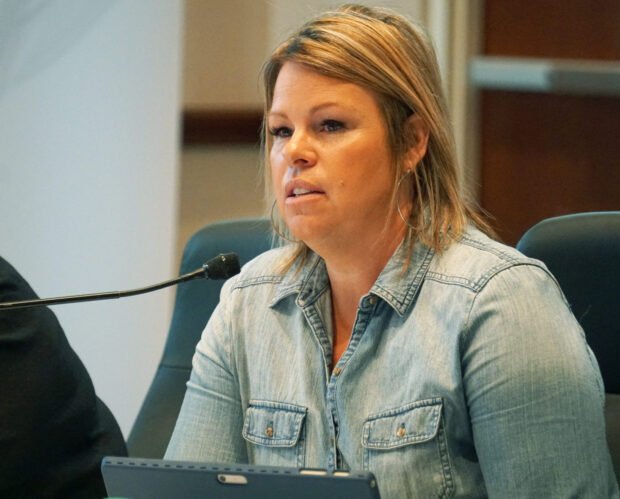It all comes down to Monday for Gov. Brad Little’s K-12 education task force.
That’s when the panel of 26 education, business and political leaders comprising Little’s “Our Kids, Idaho’s Future” task force are expected to issue their final votes and approve a set of education reform recommendations for the the first-term governor.
The task force has been on the job since Little created it on May 15, staging 26 meetings across Idaho between the full task force and its four subcommittees.
The pace of work picked up over the past month, as the task force whittled a list of 11 preliminary recommendations down to five priority recommendations.
The task force’s work is important because Little asked it to develop a small number of recommendations designed to increase Idaho students’ literacy rates and readiness to go on to college and careers. Little and his advisors have said that if he accepts the recommendations, he would like to use them to create a five-year plan for improving education.
On Monday, task force members will only vote on the five prioritized recommendations. Members will be allowed to vote yes to approve a recommendation, no to oppose a recommendation or abstain from voting.
Although the lists sits at five now, it may be narrowed down even further. State Board of Education President and task force co-chair Debbie Critchfield said the votes will be what establishes support for each of the recommendations, and she isn’t sure how things will play out.
The five priority recommendations are:
- Offering optional state-funded, full-day kindergarten across Idaho.
- Increasing pay for veteran teachers by building out the career ladder salary allocation program to pay out to $60,000.
- Creating budget flexibility by “collapsing” some budget earmarks (often called line items) in favor of putting that money into discretionary spending to give school officials more of a say in how they spend state funding. At the same time, this recommendation calls for preserving several existing line items with a statewide benefit, including salary money and funding for the K-3 literacy initiative.
- Increasing training and resources to help students facing social and emotional challenges, including trauma and mental illness.
- Creating a new statewide accountability plan that is narrowly focused on growth in K-3 reading scores, as measured by the Idaho Reading Indicator (IRI), relative to schools with similar demographic characteristics.

Recently, Critchfield said she’s received a number of questions about the accountability recommendation. Idaho already has an accountability plan that the State Board and U.S. Department of Education approved in 2018 as part of Idaho’s consolidated state plan to comply with the federal Every Student Succeeds Act. In fact, the IRI is already one of the measures included in that plan.
The new proposal isn’t to be a “gotcha,” task force co-chair Bill Gilbert said.
Critchfield said the task force isn’t talking about reopening the ESSA plan or turning the IRI into a high stakes test where the feds or state government will use results to cut funding or sanction a school.
Instead, Critchfield and Gilbert said the proposal is all about taking an existing measurement tool, that is deployed across state and has buy-in from educators, and using that tool to inform citizens about how their local students are progressing toward reading achievement goals.
“We’re not doing anything different with state or federal accountability as far as the IRI is concerned,” Critchfield said. “What we’re talking about, in the context of the task force, is using the IRI as a performance indicator so boards have the discussions and make the comparisons. Ultimately, the accountability lies with the patrons of the school districts.”
Task force members have reached the point where they are ready for a final vote and will not accept public comment Monday, Critchfield said. She said there will be additional options for public comment through the State Board of Education, the Legislature and Little’s office as the focus shifts toward implementing the recommendations in 2020.
The “Our Kids, Idaho’s Future” education task force meets at 9 a.m. Monday at Boise State University’s Student Union Building. Check back with Idaho Education News late Monday afternoon for full coverage.
